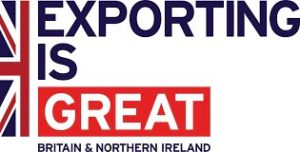News & what's on - Written by Barry & Richard on Tuesday, August 13, 2019 7:39 - 1 Comment
Subsidised anti-bribery help from the UK Government for SME’s. Eyes wide open: strings attached!
 Without much fanfare the government recently launched a subsidised Business Integrity Consultancy Service.
Without much fanfare the government recently launched a subsidised Business Integrity Consultancy Service.
Despite the lack of publicity, and the somewhat opaque government website marketing the scheme, the initiative appears, at first blush, to be a potentially valuable resource for SMEs that want to expand their businesses into certain high-risk areas of the globe, i.e., emerging markets that carry risks of bribery, corruption, and human rights issues, according to the UK government. This is especially so since the government has recently rejected the House of Lords suggestion that additional guidance on Adequate Procedures would be useful stating that:
“…the guidance was only ever intended to provide general procedural guidance. It was deliberately not prescriptive but is certainly not a one-size-fits-all document. It is rather an outline guide as to how businesses should go about the task of determining what is required for them in a way of bribery prevention procedures.”
“…the Government does not consider that it is best placed to provide and neither would it be right for government or the prosecution agencies to give more examples or to suggest procedures that would be likely to provide a good defence. Companies should consult qualified legal and compliance professionals…or in the case of SMEs seek the support provided by trade bodies…”
Subsidised anti-bribery consultancy is not to be sniffed at – but we recommend that those considering using the service do so with their eyes wide open.
How does it work?
Through the Business Integrity Consultancy website, users can access various guidance documents and information all brought together with the aim of promoting British business overseas.
The Business Integrity Consultancy Service, says the information page, ‘provides access to consultancy at a reduced fee’ and offers ‘up to five days of consultancy for first-time users, which can be spread over two months’.
Eligible companies may apply for the anti-corruption consultancy, provided by the Basel Institute on Governance, and can ask for guidance on a number of issues.
Applicants need to download an application form. which gives more detail for the sorts of things offered for example below is an extract from the form:
| Anti-corruption guidance | |
| What kind of anti-corruption guidance do you need? Please select one option only, not one option per category. | |
| Guidance around compliance and how to stick to the rules. | |
| Understanding the requirements and consequences of the UK Bribery Act. | |
| Country specific guidance on local and international laws or regulations. | |
| Remedial strategies for when things go wrong. | |
| Guidance around prevention (such as identifying risks and getting ahead of the problem). | |
| What you should consider when conducting company risk assessments. | |
| Corruption risks in specific countries or sectors. | |
| Policies, systems and procedures to prevent bribery and corruption. | |
| Guidance around collective action (for example integrity pacts, standard setting initiatives, and joint agreements). | |
| How to establish effective collective action initiatives to tackle bribery and corruption or make existing initiatives successful. | |
| International workshops focussing on integrity issues within a particular country. | |
Eligibility and Cost
To be eligible, a company must employ no more than 250 people and have a turnover of no more than £44 million.
Companies will be expected to pay a percentage of the cost of the service, calculated by reference to the size of the company, with ‘small’ companies expected to pay 20% and ‘medium’ sized companies expected to pay 40% of the cost.
Solution or Complication?
The service requires those participating to agree to certain terms and conditions, including:
- To undergo a basic due diligence assessment within 10 working days of the application being received by the Business Integrity Hub.
- To report any evidence or allegations of bribery and corruption to the National Crime Agency (NCA) and the Serious Fraud Office (SFO).
There is no available guidance on how these conditions will work in practice.
For example, it is not clear, who carries out the due diligence assessment and what is involved. What is clear is that the assessment will not be covered by the legal privilege usually applied to such work when carried out by the company’s own lawyer.
The reporting obligation raises obvious issues and goes beyond obligations that would already apply to corporates who have discovered and are investigating a potentially criminal issue. We strongly recommend that legal advice be taken before any such report is made by anyone including a participant in the scheme.
If your business would like to participate but you would like to understand what you may be letting yourself in for then let us know, we’d be happy to talk it through with you.



Most notably, the government disagreed that the Bribery Act s guidance should be expanded to provide greater assistance to the business community, particularly small or medium-sized enterprises (SMEs), as to what procedures are likely to be considered adequate for the purposes of the statutory defence in Section 9.